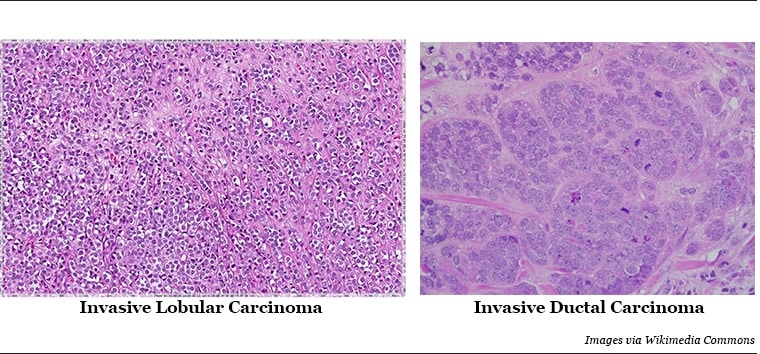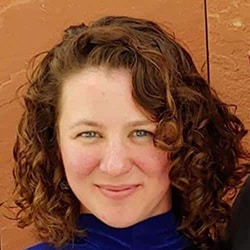AACR and LBCA Facilitate Research Into Understudied Form of Breast Cancer
During Deborah Mueller, MD’s tenure as a trauma surgeon and clinical care physician at UT Health San Antonio, she cared for countless patients with breast cancer, helping them cope with their diagnosis and navigate their treatment options. That experience didn’t stop her from being blindsided by her own lobular breast cancer diagnosis in 2022.
“It’s a difficult thing to hear,” she said in an interview with Texas Public Radio. “I don’t think anybody’s immune to that.”
Mueller was diagnosed with invasive lobular carcinoma (ILC), a form of breast cancer that accounts for around 15% of all breast cancer diagnoses. In contrast to ductal breast cancer, which comprises the other 85%, ILC has far less research about its genetic drivers and response to common therapies and far fewer clinical trials evaluating treatments in patients. As a result, the treatments for ILC are often based on what works in invasive ductal carcinoma (IDC), Mueller explained.
“There is some science showing they respond differently,” Mueller said. “There’s just a lot more work to be done.”
Mueller was grateful to discover the Lobular Breast Cancer Alliance (LBCA) and its advocacy work, which matched her desire to promote ILC research and education. She quickly expressed interest in joining the board of directors and was appointed in May 2022, where she served until her untimely death from the disease in February 2023. In a press release, her husband described her as, “a master surgeon, inspirational leader and mentor, and amazing wife and mother. She was passionate, perseverant, curious, and pragmatic in caring for trauma patients, the critically ill, and women with breast cancer.”
LBCA was thrilled to partner with the American Association for Cancer Research (AACR) to launch the AACR-LBCA Deborah Mueller Foundation Fund Invasive Lobular Carcinoma Innovation and Discovery Grants, which will be awarded for the first time in 2024 thanks to the generosity of Mueller’s family. Together, the two organizations have a strong track record of collaboration. With the support of AACR, LBCA funded their first ILC research grant—an Invasive Lobular Carcinoma Research Fellowship program that started in 2021.
“It is very meaningful to be able to support important invasive lobular carcinoma research with a gift from [Mueller’s] family in her name,” said Laurie Hutcheson, MS, executive director of the LBCA, in a press release. “Lobular breast cancer research is still such a new area for breast cancer research. This grant solicitation … will stimulate efforts into finding answers, new models for studies, and new paths for research leading to desperately needed, specific treatments for lobular breast disease.”
Here, we offer a closer look at what makes ILC particularly difficult to define and treat and how this new grant mechanism will uniquely help researchers address these challenges.
What Is Lobular Breast Cancer?
The National Cancer Institute (NCI) defines lobular breast cancer as cancer that forms in the milk-producing lobules of the breast. In contrast, ductal breast cancer forms in the ducts that transport milk from the lobules to the nipples.
Physically, the feature most unique to lobular carcinomas is the loss of a cell adhesion protein known as E-cadherin. E-cadherin loss leads to cell discohesion and formation of a characteristic single-file pattern on histology. Since ILC tumors typically form in thread-like patterns instead of in lumps like most IDCs, they can be more difficult to feel on a breast exam or see on a mammogram. Symptoms of ILC can include the feeling of a firm area or a mass, swelling, pain, skin dimpling, or other changes to the appearance of the nipple or breast.

ILC can also exhibit unique patterns of metastasis. While it can spread to sites traditionally associated with breast cancer, such as the bones, brain, liver, and lungs, it can also spread to gastrointestinal organs, gynecological organs, the peritoneum, leptomeninges, and orbital tissues.
Certain molecular differences also commonly differentiate ILC from IDC, but the amount of available data is limited. Most ILC tumors are characterized by the expression of estrogen and/or progesterone hormone receptors but not overexpression of the growth factor receptor HER2—a subtype that, in IDC, is associated with the best prognosis. Accordingly, ILC cells are known to proliferate relatively slowly. ILC tumors, however, are typically associated with a worse prognosis than their IDC counterparts. To further compound the issue, common tests that survey gene expression patterns to help select treatments may not be as useful for patients with ILC as for patients with IDC.
The ambiguities and challenges surrounding ILC diagnosis, characterization, and treatment necessitate a better understanding of what makes ILC unique and how those unique characteristics may be exploited to stop cancer growth.
Driving Lobular Breast Cancer Research

In 2021, the AACR and LBCA teamed up to offer the first AACR-LBCA Invasive Lobular Carcinoma Research Fellowship, awarded to early-career ILC researchers to support innovative research projects that shed light on ILC biology.
The 2021 Fellowship was awarded to Candace Frerich, PhD, who at the time was a postdoctoral fellow at the UT Southwestern Medical Center. Her project, which was published in the journal Cancers in 2023, investigated the role of the glucocorticoid receptor (GR) in modulating ILC proliferation and metastasis.
Frerich and colleagues found that GR activation could dampen ILC cell proliferation, but it could also promote gene expression patterns characteristic of metastasis. The researchers argued that this discovery might not only partially explain the contrast between the slow growth and high mortality of ILC, but it may also present a possible drug target in the form of GR, several inhibitors of which are in clinical testing.

In 2023, the AACR and LBCA awarded another Fellowship to Capucine Héraud, PhD, a research fellow at Dana-Farber Cancer Institute. While her research is ongoing, her project aims to explore why ILC tumors—most of which express the estrogen receptor and should therefore be sensitive to endocrine therapy—do not always respond to this common treatment. Specifically, she and her colleagues intend to compare the mechanisms that regulate gene expression between IDC and ILC tumors that express the estrogen receptor.
“I am extremely honored and grateful to be a recipient of this AACR-LBCA Invasive Lobular Carcinoma Research Fellowship,” Héraud said. “With this support, I am excited to be able to advance our research into epigenetic changes in ILC versus IDC by using single-cell analysis.”
Apply Now
The AACR and LBCA are offering two Deborah Mueller Foundation Fund Invasive Lobular Carcinoma Innovation and Discovery Grants in 2024. Each award will provide $50,000 over one year to a researcher exploring any aspect of clinical or basic research directly related to lobular breast cancer.
Applicants must be AACR members with a doctoral degree in a relevant field who are independent researchers affiliated with an academic, medical, or nonprofit research institution anywhere in the world.
A unique requirement of this grant is the inclusion of a patient advocate collaborator who will assist with the planning, development, and execution of the research project. Principal investigators are expected to identify such a collaborator in their grant application.
To be considered for this grant, complete an application by Friday, April 12 at 1:00 p.m. ET.



